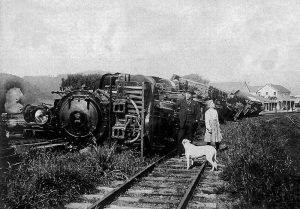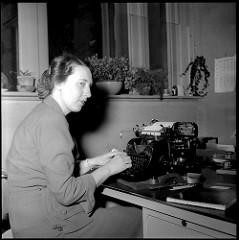Posts by Bryn Greenwood
As it has for most of us, COVID-19 upended not just my plans, but my schedule. In March, all three of my weekly volunteer opportunities were cancelled until further notice, which put me in my house for six more hours a week than I usually am. I can’t remember what I frittered away those hours on the first few weeks of the shutdown, but by mid-April, I began cleaning. In May, having cleaned and organized pretty much everything else in my house, I started on the filing cabinet in the corner of my office.
The filing cabinet held a ridiculous number of years of utility bills and bank statements, as well as the owner’s manuals for things I no longer own, including my first telephone answering machine. Like a time capsule, in that same drawer, I found the manuscripts for dozens of short stories, plays, and novels that are so old they are handwritten, typed, or printed from long obsolete computer platforms. In short, they are artifacts from my early writing life, each of them the lone remaining copy of a story I once desperately needed to tell.
Leafing through them, I soon identified a common thread in those early stories. They all took place far from Kansas, where they were written. There’s a story of a married couple in Bath, England, a young orphan in post-WWII Yokohama, a woman with amnesia stranded in Gare Saint-Lazare. In those stories, I see how keenly I wanted to escape my home. I see a teenaged me who thought my life would not start until I went out into the world, and a big part of that life was my writing.
So I went. To New York, to London, to France. (There is an underpants joke here that I can’t quite nail.) I even went to Japan for a few years, then to Florida, a strange and foreign place in its own right. At last, after so much perambulating, I came back to Kansas. My writing came back to Kansas, too, and that’s what I’ve been thinking about since I unearthed those old stories.
After all those years of wandering the earth, and all those years of believing that I needed to see the wider world to write about it, my breakthrough novel, the one that well and truly launched my writing career, it was about a girl growing up in rural Kansas. The next novel, also about people in Kansas. The book I’m writing now … Kansas.
It’s not that I didn’t benefit from seeing the world. I firmly believe that improved me and my writing, but it turns out that the stories I need to tell aren’t about people very different from me who live far away. The stories I was meant to tell are the ones I already know, which brings me to the title of this blog post.
Read MoreNearly every professional writer I know has dire things to say about sophomore novels, and for good reason. You don’t have to look very far at both trade and informal reviews to find scathing assessments of this or that writer’s “lackluster sophomore effort” or “disappointing follow up” to their popular debut novel. The second novel can feel doomed before you even write it.
2019 was a special year for me, because it marked the publication of my sophomore novel. More accurately, one of my sophomore novels, because courtesy of the myriad and complicated layers of publishing, I am in the unusual and somewhat unenviable position of having published three debut novels, and three sophomore novels.
My first two novels were self-published under a pen name and, while the first one wasn’t a runaway success, it found its rather obscure niche. Year after year, it continues to sell in modest but reliable numbers. The second one, despite fitting squarely in that obscure niche, doesn’t sell at all and never has.
My next two novels were published by an independent press. The first one did well for a debut novel by an unknown writer from a very small publisher. It got some nice reviews and sold fairly well, all things considered. My second small press book foundered out of the gate. Unread, unreviewed, and generally unloved by readers who liked the book that came before it.
Then in 2016, what was technically my fifth novel was published by a major New York publisher. Because my first two novels under my own name had been with a small press, that first Big 5 book was billed as my “debut” novel. I got a great deal of the attending publicity and hype that comes with a well-received debut. There were times when it felt like publishing had miraculously restored my virginity, or at least made one last valiant effort to present this middle-aged redneck debutante to literary high society.
That third debut succeeded beyond my wildest dreams, but shortly after it made the New York Times bestseller list, I had to get serious about writing my next book. Hopefully my final sophomore novel. It came out last year and has generally been received in true second novel fashion. If first books are like first children, who get elaborate christenings and meticulously curated baby books, then The Reckless Oath We Made is a second child, who got a hurried sprinkling and a My First Year that is full of blank pages and blurry photos. Ah, we wanted to get a picture of the baby’s first steps, but the phone was on the charger.
There’s a common perception that a successful debut will help sell a second novel, but I don’t know any writers who believe that or who have experienced that. Part of the problem is managing expectations, because not every reader is willing to follow a writer to the next thing. I get a surprising (to me) amount of mail asking when I’m going to publish a sequel to All the Ugly and Wonderful Things. The answer is never, but it’s been enlightening to see the degree to which some readers attach to a book and don’t […]
Read MoreIf you’re anything like me, you’ve spent a lot of your writing years dreaming of that moment when you’ll eventually be able to quit your day job and earn your living as a writer. This month I’m celebrating my one year anniversary of being just a full-time writer. (I was a full-time writer for years, while also working full-time at another job.)
Like all modes of living in the modern world, that writer’s dream requires money. Some people have sources of money that aren’t dependent on work. Some people have a partner in their life who can help pay the bills. Others of us are simply on our own, reliant on our work to keep ourselves housed and fed. There was recently a bit of a kerfuffle in the literary world when someone revealed what happened after they got that dream advance and weren’t really prepared for it. I want to offer a different perspective on how you can prepare yourself for your dream coming true.
Define the terms of your dream. It’s exciting and a little overwhelming when you sign the contract and see the dollar amount of that life-changing advance. While it’s tempting to play the lottery game and fantasize about all the things you could do with the money, before the first check arrives, you need to make plans. How are you going to live? How are you going to manage your money? How long do you need that money to last? My dream was to continue to live the same way I’ve been living the last decade or so, but without working two jobs. It was a fairly modest goal, and I knew how big of an advance I needed to embark on that dream. Defining my dream and knowing how much money I would need to put it in motion made it easy to pull the trigger when the opportunity came.
Hire an accountant and a financial planner. These are the two professionals who’ll help you implement the plans you make in step one, and it’s best to find ones who have experience with people working in the arts. You’ll need to be brutally honest about your living expenses, your obligations, and your goals. If you love eating out, don’t imagine that will change just because you want to suddenly become someone who can live off less. A financial planner will help you figure out long term strategies, but an accountant will help you deal with a lot of very important things in the short term. This was the cheapest thing I did to celebrate the book deal that let me quit my job. The first invoice from my accountant was less than the high end bottle of champagne I bought and, as delicious as the champagne was, I’m getting more out of my accountant.
Read MoreIt’s right there in my author’s note at the back of the book: I’m the daughter of a drug dealer and I wrote a book about the daughter of a drug dealer. After Where did you get the inspiration for this story? this is the most common question that readers and interviewers ask me: Is this book autobiographical? The short answer is no, which tends to leave a lot of people unsatisfied. The long answer is that in some way all my stories are autobiographical, and yet not. The difference between the memoir I’ll never write and the novels I can’t stop writing is all about processing personal experience into fiction. In true writerly fashion, I struggle to describe this process without an appropriate metaphor, and happily, medical science has provided me with one.
In an astounding breakthrough in the early 2000s, Doris Taylor at the Texas Heart Institute began experimenting with decellularizing heart tissue, in hopes of replacing regular organ transplants with organs created especially for the recipient. Taking a donor heart and using common chemical detergents, researchers have successfully scrubbed all the cellular structures of the donor away. What remains looks less like a human body part and more like the ethereal chrysalis of an alien butterfly: white, bloodless, and strangely architectural.
After the heart has been decellularized, it is injected with stem cells from the future recipient and placed into a bioreactor, which functions as the heart’s artificial lungs. There it is allowed to mature into a beating heart that will be a perfect tissue match. When the technique is perfected, likely in the near future, the recipient of this type of transplant will be in no danger of rejecting the organ, and will need no immunosuppressant drugs.
This is also the method I use to turn my life experiences into fiction. First, I take the heart of the thing I have lived, always the heart. Next, I remove all the blood and tissue of my existence, and with it, all of the emotions that I’ve kept stored there. It’s not that emotions aren’t needed–they are–but that my own are not the focus of the story. Once I have stripped all of that away, I can better see the mysteries and the infrastructure of what I’ve lived. I hold the ghost heart in my hands and identify the parts of the experience that I need for the story. Then I submerse the heart into the blood of my character.
Read MoreThis happens more often than I’d like to admit: I’m sitting around with friends or acquaintances or random strangers, and the fact that I’m a writer comes up. (I never noticed before just how often people say, “What do you do for living?” until I started answering that question with “I’m a writer.”) From there the conversation usually moves to what genre I write, what I’ve published, when my next book is coming out, and then like a hand grenade tossed into my lap: “What’s your book about?”
I freeze. My brain sets off alarms that sound all over my body. Panic sets in. I try to buy time by saying, “Wellllll,” and “Uuuuummm,” and “Okay, sooooo.” My first book was published seven years ago, my fourth novel is coming in August, and this still happens every time someone asks me what my book is about. When I received a PR Q&A from my publisher with the question “what is your book about?” I may have yelled out loud, “Don’t you people have a whole sales department to tell me what my book is about?”
Part of this difficulty is related to many writers’ struggles with query letters and elevator pitches. After you’ve spent months or years crafting a complex and nuanced story, now you’re supposed to boil it down to a few sentences? I’m terrible at this in part for the same reason I write novels instead of flash fiction.
The other part of why this question is so hard for me is about the panic and how my brain responds to it. More than one person has suggested that I should just memorize my official pitch word for word. Sadly most of the time the panic wipes my brain clean, and all I can find in my Things I’ve Memorized file is a few random Bible verses and the Pledge of Allegiance. Even on the occasions when I successfully regurgitate what I’ve memorized, I just sound like a malfunctioning robot. If I’m supposed to be selling my book to potential readers, that is not the way to do it.
I wish I could tell you that I have found the solution to this problem, and that you can read about it after the jump, but the truth is I choked on my one and only attempt to pitch a novel to an agent in person twenty years ago, and I choked again this last week.
I was at a gathering of booksellers and inevitably I was asked the question about my forthcoming novel. Cue panic, followed by me opening my mouth and having a few hundred words fall out in no particular order. I’m here to tell you that this is not ideal, but it’s also not a complete catastrophe. After all The Princess Bride has been successfully selling itself with a pile of random words for many years: “Fencing. Fighting. Torture. Poison. True love. Hate. Revenge. Giants. Hunters. Bad men. Good men. Beautifulest ladies. Snakes. Spiders. Beasts of all natures and descriptions. Pain. Death. Brave men. Coward men. Strongest men. Chases. Escape. Lies. Truths. Passion. Miracles.”
All this to say that my wisdom is much more philosophical than practical. Over […]
Read MoreLater this week, I will put in my final hours at my day job. For the first time since I was eight years old, I won’t have a job, but I won’t be unemployed. Instead, I’ll be self-employed as a full-time writer. I’m not exaggerating when I say this moment has been more than twenty years in the making. When I decided not to pursue a PhD all those years ago, my reasoning was simple. I wanted to be writer. Not a writer/professor, just a writer. From where I was standing, it seemed to me that working as a secretary was more likely to provide me with the extra time and emotional energy to pursue my writing than working in academia. With that thought in mind, I got the first of several secretarial jobs, and started work on the first of many novels. I took Anthony Trollope as my patron saint. For thirty-three years he supplemented his writing with a paid position in the British Post Office.
There was no fast forwarding through the next twenty years, but for your sake, I will sum up: I worked. I wrote. Slowly, I started selling what I wrote. Some short stories, some essays, then a first novel, then a few more. This year, I reached a tipping point. My writing income exceeded my secretarial income, but more pressing, my writing time exceeded my secretarial time. I was exhausted and burned out. As scary as it was to consider being self-employed, I knew I had to choose. Of course, I chose writing.
Something interesting happened as soon as I submitted my official resignation. People starting coming around to congratulate me, but once the well wishes were offered, most people had the same question: “What are you going to do with all your time now?” I found myself explaining repeatedly that writing takes up just as much time as a regular job, and frequently a lot more. In fact, for the last five years or so, I’ve essentially worked two full-time jobs.
In a good week, I spent forty hours at my day job, and then came home to put in another forty hours on writing and writing-related tasks. Skyping with book clubs, producing newsletters, answering emails, and interacting with readers on social media can really eat up the time. Not all weeks were good, though. All of January and February this year, I worked on a major revision of my next book. My writing time was more like fifty hours a week, plus ten hours for the aforementioned writing-related stuff, all tacked onto the forty hours a week at my day job. I was officially a workaholic putting in hundred-hour weeks.
The funny thing is that every time I explain this math to people, they are shocked. They say, “You write forty hours a week?”
Read MoreFlickr Creative Commons: Marsha Wheatley
Florida Man Arrested for DUI after Ordering Burrito in Bank Drive-Thru
Florida Woman Shoots Husband and Her Mother after Uncovering Their Affair
Florida Man and Florida Woman have become icons of the 24-hour news cycle, the protagonists of a thousand “truth is stranger than fiction” stories. Florida Man and Woman get played for laughs or sensationalist click bait, even when the outcomes of their stories are serious injury, death, or emotional devastation. Because of that, they offer a useful exercise for connecting with your characters, even the ones you hate, even the ones you want your readers to hate.
While the news cycle and social media have turned Florida Man into a monolith of terrible life choices, the important thing to remember is that each Florida Man in each news story is a real person. The fateful decision that gets him on the news is a product of his personal life, his childhood, his hopes, dreams, and desires. This is true for Florida Man and it’s true for the characters you write.
Once, while discussing a writing project in which a couple of white supremacists have a walk-on role, my agent said, “Please don’t make them sympathetic.” She knows me well enough to know that my inclination as a writer is to connect with every character in some way. Even the characters I despise, I want to understand how they came to be who they are. It may not end up in the final draft of a book, but it’s always part of my writing process. The trick is to control how empathy and sympathy interact. Empathizing with your characters isn’t the same as writing them to be sympathetic characters.
In casual conversation, I frequently hear empathy and sympathy used almost interchangeably, but in terms of fiction, sympathy is for readers. Let them feel sorry for your characters. The writer’s job is empathy — submersing yourself in the worldview and emotions of your characters. You have to see the world through Florida Man’s eyes, and you have to share in the emotions that Florida Man feels.
Take for example that second headline about Florida Woman. That’s a real person who has arrived home from work to discover her husband and her mother are having an affair. Now, I’m not the sort of person who thinks a gun is a good solution to most problems, but if I were going to write this story, I would look back at the worst betrayals I’ve experienced in my life. None of them rise to this level, so I have to turn it up all the way, and put myself sincerely into this scenario to see how Florida Woman made the decision to shoot her husband and her mother.
Read MoreJanuary is always a time of new beginnings, but that means it’s a time of endings, too. Both of those things make January a time of advice–asking for it and dispensing it. As someone who has run a few laps in publishing, 2018 is feeling like my turn to give advice. What do I do about my agent who no longer returns my phone calls? Should I self-publish this? What happens if my editor doesn’t like my partial? How do I say no to these revisions?
I don’t have the answers to all of the publishing questions. Some of them I couldn’t even answer when I was asking them. Others I’ve never had to ask. Increasingly, though, I’m discovering that all my advice is premised on one belief. The writing is the writing, and everything else is just business. Whenever I’ve struggled to make a decision or to hold it all together in times of publishing difficulty, this is the truth I come back to.
The terrifying reality about publishing–as with so many things in life–is that there is no safety net. There are no guarantees in the business of writing. When I finished writing All the Ugly and Wonderful Things, I sent it to my agent. He read the first few chapters and nothing further. We exchanged a few emails about my publishing career, and it became obvious to me that we were about to part ways over what I was convinced was the best book I’d ever written.
It wasn’t just my agent who wasn’t sold on the book. The publisher of my two small press books didn’t want it either. From a business point of view, maybe I should have listened to them. Maybe I should have abandoned that book and started another. Instead I turned my back on both those relationships and kept trying to find a home for the book nobody seemed to want. There was nothing rational in my decision, because over a hundred agents rejected the book. Despite the very low odds of success, I found a new agent, who sold that unwanted book at auction.
Here’s the funny thing about working so hard to achieve my life’s dream: 20 years of failure did not prepare me for success. I didn’t even know what it would be like to have a publishing career, instead of a writing hobby, but by May of 2017, I’d made the New York Times bestseller list and earned out my advance. Everything should have been smooth sailing from there, right?
Read MoreHeads up, WU’ers: Bryn Greenwood‘s bestselling novel All the Ugly and Wonderful Things is available in paperback today! All the Ugly and Wonderful Things is a New York Times and USA Today bestseller, was named Book of the Month Club 2016 Book of the Year, and took second place in Goodreads’ ‘Best Fiction of 2016’ contest.
We’re so glad Bryn’s with us today to share with us how she handles negative reader feedback about her intensely human and controversial book, and why. Be sure to check out her bio box for links to her website and social media accounts, to learn more about All the Ugly and Wonderful Things.
Haters Gonna Hate (but you don’t have to)
It’s funny but my fan mail & my hate mail almost always start out the same way. The subject line is usually either “Your book” or the actual title of my most recent novel. The first line of the message is also the same, “I just finished reading your novel All the Ugly and a Wonderful Things and …” There is so much hanging on the words that follow that and. The next words decide whether I hit Reply or Delete. It’s one or the other, because people don’t go to the trouble of tracking down my email address unless they feel strongly about my book.
I always reply to fan mail and I always delete hate mail. Why? Because there is no universe in which replying to hate mail will have a positive outcome. The people who email me to say “You’re a disgusting human and probably a pedophile,” are not interested in having a conversation with me. They’re aiming for the email equivalent of a drive-by shooting. Inflict maximum damage and move on. They don’t want me to talk them around and, if they’ve read my book, they’ve already read the most compelling things I have to say on the subject.
On my most generous days, I suspect the people who send me hate mail just want to vent what’s inside them: hurt, fear, outrage, a sense of moral superiority. On my worst days, I wonder if they hope that their email telling me I’m glorifying child rape will be the one that finally convinces me to kill myself, or at least pull the book from publication and spend the rest of my days on earth tracking down every last errant copy so it can meet its proper fate on a bonfire. (I’m not making this up. I get emails like this. Or I assume these emails still contain this invective. Honestly, I haven’t read past the first sentence in a long time.) I also get emails from polite people who simply really hate my book. Because those emails are indistinguishable from the vituperative ones in the first sentence, even the polite ones get deleted.
Why do I tell you all this? To scare you away from writing that shocking and controversial novel that’s been brewing in the back of your head? To tell you, as if you don’t know, that the world is full of people who don’t agree with you?
No, I’m sharing the details of my regular deluge of hate mail to caution you that if by chance or […]
Read MoreFlickr Creative Commons: Fabrizio Russo
When I checked in with one of my writing friends last week, the answer I got was, “I haven’t written in months. It all seems so futile.” Another friend, who writes romance novels, said, “I’m too depressed to write. I don’t even see how the world needs my books anymore.”
They aren’t the only writers I know who are having a slump or a block or a crisis. Whatever you want to call it, the more I talked about this with my friends, the more I saw a common theme in the nature of that obstruction. Everywhere I turned, writers were telling me that they didn’t feel like their work mattered.
In times of turmoil, it can feel like your fluffy rom-com or your cozy mystery or your picture book about hamsters isn’t important. It’s not tackling the big issues, you say. Or maybe you’re saying, I’m not writing world-changing fiction. If that’s the thought behind your current writing slump, I’m here to tell you that you’re wrong.
Both the Talmud and the Quran put forth the idea that if you save one person, you’re saving humanity. Every person is a microcosm of the human race, and if your book can save one person, it is important.
I’m the last person to offer pep talks or optimistic platitudes. I’m not here to tell you that everything will be okay. Quite possibly several things will not be okay. Quite possibly terrible things are coming. What I am here to say is that writing matters. Books matter in a way that transcends empty platitudes embroidered on pillows.
Books matter, because they save people. I know they can save people because books have saved me more than once. My freshman year in college was a brutal experience. I’d just lost someone I loved very much and, as a result, stumbled into two ill-advised relationships. At sixteen, I was in over my head socially and academically. I took refuge in the library, quite literally. I hid in the stacks at all hours, reading. It was there that I found Winter’s Tale by Mark Helprin. In one of the darkest times of my life, when I’d stopped believing in love and hope and wonder, I found a book that made me believe again. I may have flunked that semester, but I am completely sincere when I say that book gave me the strength to come back the next semester and succeed.
While thinking about this question, I ended up talking to a lot of people about how books saved them, and I want to share some of those, simply to illustrate the breadth of the books that save people.
Read MoreFlickr Creative Commons: Blanca Moraes
Many years ago, I worked for a call center, where three different shifts shared the same cubicles. Like hot bunking in the military, I shared a desk with two other people. There were minor annoyances, like always having to adjust the chair, but there were benefits, too. Whoever worked the first shift had to do system updates on the computer and replenish the office supplies.
I thought about this the other day, when I was trying to describe to a friend how I can possibly work on multiple writing projects at once. I’m currently writing three different novels. Plus a few essays. And a short story. And this weird thing that may or may not be a hillbilly mythology comic book about my dog. Sometimes I feel like I’m at the writing equivalent of an enormous brunch buffet. I’m hungry and everything looks delicious! I can’t resist piling my plate up, so I’ve had to learn how to balance the urge to write several things at once.
Don’t imagine that working on multiple projects at a time is only for wild-eyed maniacs like me. There are benefits for perfectly sane writers to working on more than one thing at a time. For example, hot bunking can absolutely kill writer’s block. If you hit a block on one project, instead of butting your head against it, move on to one of your other projects and give the troublemaker a rest. Think of it like having a knee injury that keeps you from running. You can either sit around getting out of shape, or you can take up swimming and still get exercise while resting your injured knee. Studies suggest that people can’t really multitask, but that’s not what you’ll be doing. Instead you’ll be splitting your writing time to allow you to focus on more than one thing, and using that split to get a new perspective on each project.
Get fresh eyes on your characters
When you work on more than one manuscript within a short period of time, you’ll be able to refresh your eyes. Rather than looking at the world from the angle of one book all the time, shifting between multiple projects can make each of them look new. If one project has a teenage candy striper as the protagonist, and the other involves a middle aged car salesman, you can use those differences to shape those characters. You can even throw them together while you brainstorm to see how they react to a character who’s very different. Would the car salesman remind the girl of her favorite uncle, the DMV employee who flunked her on the driving test, or the sleazy older guy who tries to flirt with her at the coffee shop? Would the girl’s youth be refreshing to the man or would it make him feel bitter? You’ll learn something about both characters by enquiring.
Stretch your legs
Conversely, if you’re writing two books that are of the same genre, you can use the process of switching out to introduce more variation into your books. Have you ever read several books by the same author and felt that the narrative characters all started to blur together? Hot bunking is […]
Read MoreFlickr Creative Commons: Jonathan Gross
Bryn Greenwood, the author of All the Ugly and Wonderful Things, Last Will and Lie Lay Lain, is filling in for Therese Walsh today. Please welcome Bryn to Writer Unboxed!
We’ve heard that old gem so many times we don’t listen to it anymore. Don’t judge me until you walk a mile in my shoes. As writers, we’ve probably heard it in relationship to getting to know our main characters, but we’d do better to apply it to the myriad secondary and peripheral characters who interact with our main characters. By walking a mile in their shoes, we can learn even more about our protagonists.
Fifteen years ago, when I was querying agents with a novel that had three different point-of-view characters, most of my rejections cited that element as a problem. By the time I sold my most recent novel, multiple POVs had become so popular, nobody even flinched at the fact that my novel had sixteen narrators.
When asked why I go to such extremes, I usually forget to talk about the craft of storytelling, and end up talking about my own idiosyncratic obsessions. My urge to look at stories from all angles, to investigate all the characters, to excavate a dozen layers below the surface. Today, though, I want to talk about the ways that multiple narrators can elevate, alter, and complicate–in a good way–the story you want to tell.
If we only focus on our main characters in a scene, we’re in danger of making the other characters flat. We can fall into the trap of treating those secondary characters as props. If you look through your manuscript, you’ll see the props. The characters you need to make the action move, but who aren’t at the heart of the action. Or they don’t seem to be at first.
If your main characters go into a store to purchase something, the clerk who sells it to them is likely a prop. There’s nothing wrong with that, unless you forget that all your characters, even the props, have narrative arcs. They had a life before they entered this scene and they’ll have one after they leave. That life should inform the way they interact with the main character, and it can also give you (and your readers) a perspective on your main character that you may be missing. It may even give you a new perspective on the whole story.
When I write, I tend to overlap in multiple layers. If I have three characters in a pivotal scene, I may write a version of the scene from each character’s point of view, even though only one will make it into the book. I do that because it gives me a chance to look at elements that may not be visible to any one character. It lets me test out the emotional impact of the scene on each character.
For example, a man and a young girl walk into a jewelry store and speak to a clerk. There are three people in the scene, three stories intersecting, regardless of which one you choose to tell. That the man wants to buy a wedding ring suggests there is yet a fourth narrative intersection happening off […]
Read More



















